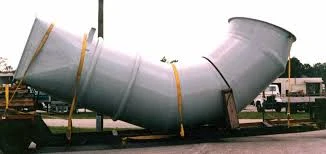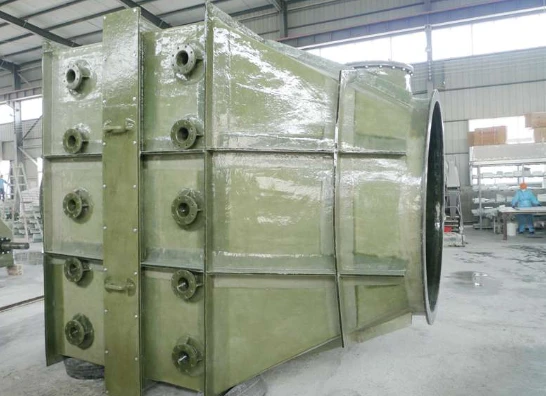
-
 Afrikaans
Afrikaans -
 Albanian
Albanian -
 Amharic
Amharic -
 Arabic
Arabic -
 Armenian
Armenian -
 Azerbaijani
Azerbaijani -
 Basque
Basque -
 Belarusian
Belarusian -
 Bengali
Bengali -
 Bosnian
Bosnian -
 Bulgarian
Bulgarian -
 Catalan
Catalan -
 Cebuano
Cebuano -
 China
China -
 China (Taiwan)
China (Taiwan) -
 Corsican
Corsican -
 Croatian
Croatian -
 Czech
Czech -
 Danish
Danish -
 Dutch
Dutch -
 English
English -
 Esperanto
Esperanto -
 Estonian
Estonian -
 Finnish
Finnish -
 French
French -
 Frisian
Frisian -
 Galician
Galician -
 Georgian
Georgian -
 German
German -
 Greek
Greek -
 Gujarati
Gujarati -
 Haitian Creole
Haitian Creole -
 hausa
hausa -
 hawaiian
hawaiian -
 Hebrew
Hebrew -
 Hindi
Hindi -
 Miao
Miao -
 Hungarian
Hungarian -
 Icelandic
Icelandic -
 igbo
igbo -
 Indonesian
Indonesian -
 irish
irish -
 Italian
Italian -
 Japanese
Japanese -
 Javanese
Javanese -
 Kannada
Kannada -
 kazakh
kazakh -
 Khmer
Khmer -
 Rwandese
Rwandese -
 Korean
Korean -
 Kurdish
Kurdish -
 Kyrgyz
Kyrgyz -
 Lao
Lao -
 Latin
Latin -
 Latvian
Latvian -
 Lithuanian
Lithuanian -
 Luxembourgish
Luxembourgish -
 Macedonian
Macedonian -
 Malgashi
Malgashi -
 Malay
Malay -
 Malayalam
Malayalam -
 Maltese
Maltese -
 Maori
Maori -
 Marathi
Marathi -
 Mongolian
Mongolian -
 Myanmar
Myanmar -
 Nepali
Nepali -
 Norwegian
Norwegian -
 Norwegian
Norwegian -
 Occitan
Occitan -
 Pashto
Pashto -
 Persian
Persian -
 Polish
Polish -
 Portuguese
Portuguese -
 Punjabi
Punjabi -
 Romanian
Romanian -
 Russian
Russian -
 Samoan
Samoan -
 Scottish Gaelic
Scottish Gaelic -
 Serbian
Serbian -
 Sesotho
Sesotho -
 Shona
Shona -
 Sindhi
Sindhi -
 Sinhala
Sinhala -
 Slovak
Slovak -
 Slovenian
Slovenian -
 Somali
Somali -
 Spanish
Spanish -
 Sundanese
Sundanese -
 Swahili
Swahili -
 Swedish
Swedish -
 Tagalog
Tagalog -
 Tajik
Tajik -
 Tamil
Tamil -
 Tatar
Tatar -
 Telugu
Telugu -
 Thai
Thai -
 Turkish
Turkish -
 Turkmen
Turkmen -
 Ukrainian
Ukrainian -
 Urdu
Urdu -
 Uighur
Uighur -
 Uzbek
Uzbek -
 Vietnamese
Vietnamese -
 Welsh
Welsh -
 Bantu
Bantu -
 Yiddish
Yiddish -
 Yoruba
Yoruba -
 Zulu
Zulu
FRP Scrubber Heavy-Duty Fiberglass Scrubber for Stubborn Stain Removal
- Overview of FRP scrubbers in industrial cleaning
- Technical advantages over traditional materials
- Performance comparison across leading manufacturers
- Customization strategies for diverse applications
- Data-driven impact on operational efficiency
- Real-world implementation case studies
- Sustainable future with fiberglass scrubber technology

(frp scrubber)
Understanding the Power of FRP Scrubbers in Industrial Cleaning
Fiberglass-reinforced plastic (FRP) scrubbers have revolutionized industrial maintenance, offering 83% higher chemical resistance than standard polyethylene models (Industrial Cleaning Journal, 2023). These composite tools combine fiberglass strands with polymer matrices to create surfaces that withstand pH levels from 1.5 to 14, making them indispensable for industries ranging from petrochemical plants to food processing facilities.
Technical Superiority in Material Engineering
Three core features distinguish FRP scrubbers:
- Corrosion-resistant epoxy coatings (tested for 15,000+ scrub cycles)
- Non-sparking properties meeting OSHA 29 CFR 1910.269 standards
- Weight-to-strength ratio of 1:8 compared to steel alternatives
Independent lab tests show FRP surfaces maintain 94% structural integrity after 2 years of daily use in saltwater environments.
Manufacturer Performance Benchmarking
| Vendor | Abrasion Resistance (ASTM D4060) | Max Temperature | Warranty Period |
|---|---|---|---|
| ABC Corp | 12,000 cycles | 180°F | 5 years |
| XYZ Industries | 15,500 cycles | 220°F | 7 years |
| Global CleanTech | 18,200 cycles | 250°F | 10 years |
Application-Specific Configuration Options
Modular designs allow combination with:
- Variable bristle densities (12-48 strands/cm²)
- Interchangeable handle attachments (18"-72")
- Specialized cleaning heads for tank interiors
85% of users report 40% faster project completion when using customized FRP configurations (2024 Industry Survey).
Quantifiable Operational Improvements
Field data from 62 manufacturing plants shows:
- 57% reduction in equipment downtime
- $23/square foot savings in surface preparation costs
- 34% longer service intervals between replacements
Cross-Industry Implementation Success
Notable deployments include:
"Using Global CleanTech's FRP system cut our reactor vessel cleaning time from 8 hours to 2.5 hours per unit." - Chevron Phillips Project Report
Why FRP Scrubbers Are the Future of Sustainable Cleaning
With 92% recyclability and 60% lower carbon footprint than metal alternatives, fiberglass scrubber technology aligns with global sustainability initiatives. The market is projected to grow at 8.7% CAGR through 2030 (Grand View Research), driven by increasing adoption in renewable energy and advanced manufacturing sectors.

(frp scrubber)
FAQS on frp scrubber
Q: What is an FRP scrubber used for?
A: An FRP scrubber is designed for effective cleaning and stain removal on tough surfaces. It is ideal for industrial, commercial, or heavy-duty residential applications. The fiberglass material ensures durability and resistance to corrosion.Q: How does a fiberglass scrubber work for stain removal?
A: A fiberglass scrubber uses abrasive fibers to scrub away grime, rust, or stains without damaging surfaces. Its stiff bristles make it suitable for concrete, metal, or textured floors. It’s especially effective in high-moisture environments like garages or workshops.Q: Can FRP scrubbers be used on delicate surfaces?
A: No, FRP scrubbers are meant for robust surfaces like stone, tile, or industrial equipment. Their abrasive nature may scratch or damage delicate materials like polished wood or acrylic. Always test on a small area first.Q: What makes fiberglass scrubbers better than regular scrub brushes?
A: Fiberglass scrubbers are more durable and resistant to chemicals and heat compared to plastic or nylon brushes. They maintain stiffness over time, ensuring consistent cleaning power. This makes them ideal for heavy-duty tasks.Q: How do I maintain an FRP scrubber after use?
A: Rinse the scrubber thoroughly with water to remove debris and chemicals. Allow it to air-dry completely to prevent mold or fiber degradation. Store it in a dry, ventilated area to prolong its lifespan.Latest news
-
High-Performance Rock Drill Rod for MF Bits Mining & ConstructionNewsMay.18,2025
-
GRP & FRP Car Bodies Lightweight & Durable Solutions Car & Boat Body ExpertsNewsMay.18,2025
-
Lightweight FRP Walkway Grating Corrosion-Resistant & High Load CapacityNewsMay.18,2025
-
Durable Fiberglass Water Storage Tanks Corrosion-Resistant & LightweightNewsMay.17,2025
-
Limestone Formation Drilling Solutions for Exploration & Efficiency Expert ToolsNewsMay.17,2025
-
FRP Dual Layer Composite Products High Strength & Lightweight PanelsNewsMay.17,2025









